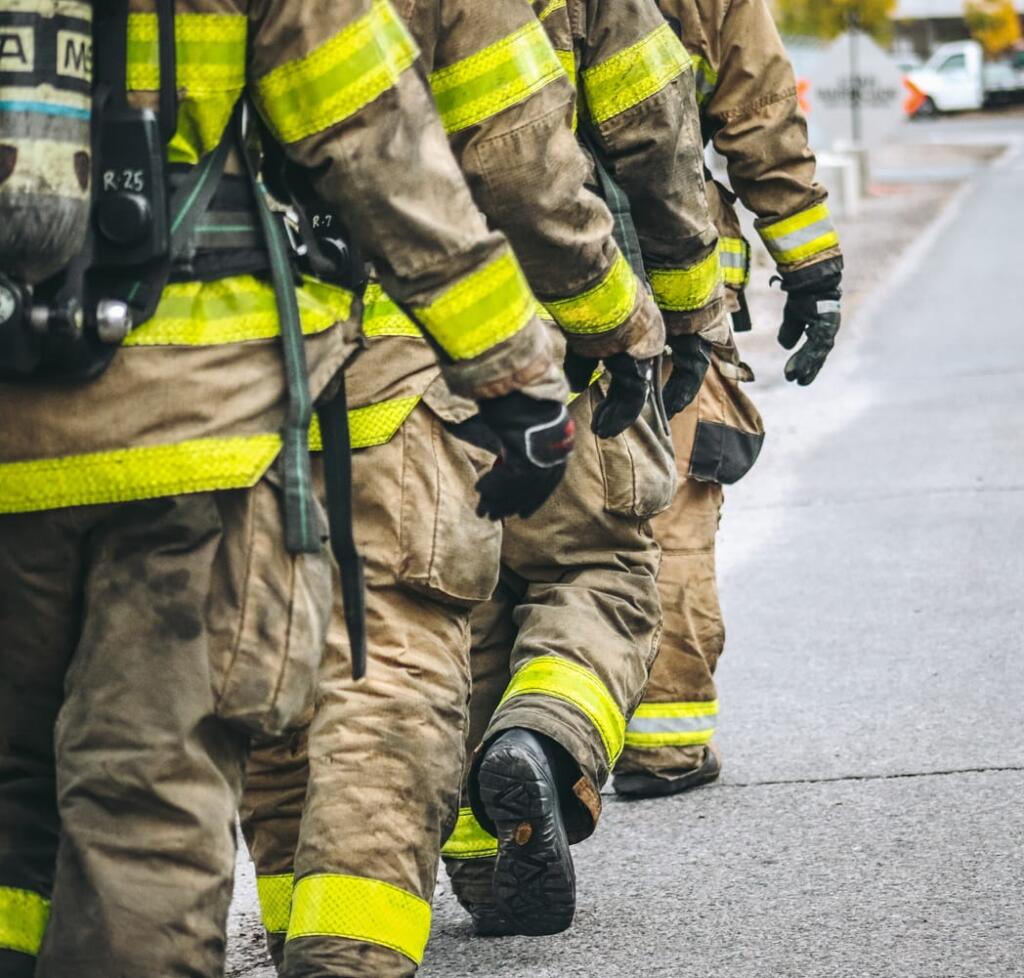
Firefighters are a special breed of individuals, known for their courage and bravery in the face of danger. They are selfless and courageous and frequently put their own safety and comfort aside to protect the lives of others.
Unfortunately, this can come at a price. The job of a firefighter is to keep people safe, and it is important that they receive the same in return. Firefighters are exposed to a variety of hazardous materials and particles in the course of their occupation that can lead to an increased risk of cancer. However, with the right preventative health plan and regular health screenings, firefighters can help reduce their risk of developing cancer and detect it early for more effective treatment if it does occur.
Schedule your preventative health scan today with the Preventative Diagnostic Center
What is the cancer rate for firefighters?
Firefighters have a 9% higher risk of a cancer diagnosis and a 14% higher risk of dying from cancer than the general population. Research spanning decades, regions, and more than 80,000 firefighter participants confirm the correlation between firefighting and occupational cancer. The rate of firefighter cancer also increases depending on the number of fires a firefighter encounters during their career.
Thankfully there are measures that can be taken to reduce the risk of cancer associated with this noble occupation. Firefighters should seek medical assistance in creating and implementing a preventative health plan as well as scheduling regular health screenings to reduce their risk of developing cancer and other illnesses related to their field of work.
Are firefighters at a higher risk for cancer?
Due to the carcinogenic materials that firefighters are exposed to in their line of work, these individuals are at an increased risk of cancer development compared to the general public. This includes cancer types ranging from rectal cancer to melanoma. They may also be at an increased risk of non-Hodgkin’s lymphoma as well.
Some of the more common firefighter cancer types include the following:
- Rectal cancer
- Prostate cancer
- Bladder cancer
- Testicular cancer
- Lung cancer
- Mesothelioma
- Malignant melanoma
Book your non-invasive CT scan to ensure your overall health and well-being
Why do firefighters get cancer?
Modern homes and buildings are composed of a number of synthetic and plastic materials that in turn create more smoke than natural materials. When these materials burn, carcinogens such as aromatic hydrocarbons are released into the air and inhaled by individuals within proximity.
At fire sites, firefighters are easily exposed to soot, polycyclic aromatic hydrocarbons, volatile organic compounds, acidic gases, and particulate matter after the fire has been quenched or when changing their protective equipment. Firefighters may also be exposed to other cancer-causing agents such as asbestos and diesel exhaust while in the field.
Related: Cancer Rates Among Air Force Pilots
How can you protect yourself from cancer and other occupational-related illnesses?
There are steps that firefighters can take to reduce their risk of developing cancer. The first step to note is prevention. Prevention is always the most ideal option when discussing occupational-related illnesses of any kind.
This proactive approach has the potential to stop cancer and other illnesses before they start. Firefighters should speak with their medical professionals to evaluate and determine actions that can be taken to reduce the risks related to their profession.
Other steps to take to reduce your risk of cancer and occupation-related illnesses include:
- Reduce exposure to diesel exhaust by taking appropriate measures to ensure adequate airflow and minimal excretion
- Wear the proper personal protective equipment (PPE) such as self-contained breathing apparatuses
- Clean and care for PPE and self-contained breathing apparatuses appropriately
- Properly store PPE and self-contained breathing apparatuses
- Decontaminate as soon as possible following every fire
- Avoid direct contact with smoke and other hazardous materials and wear the appropriate PPE when necessary
- Use gloves when handling contaminated equipment
- Talk to medical professionals about a preventative health plan and regular health screenings
Preventative screenings for all occupations
Firefighters are an essential part of our communities. They put their lives on the line to protect others on a regular basis. In order to do their job to the best of their ability, they need to take appropriate precautions and seek proper medical attention.
Firefighters everywhere should take their health seriously and understand the importance of having a preventative health plan and regular health screenings for cancer and other diseases. These small steps can substantially reduce their risk of developing cancer or ensure effective treatment early if cancer is discovered. Prevention and early detection saves countless lives and should be a top priority for all firefighters.
Firefighters everywhere are encouraged to schedule your preventative scans
References:
FAQ – Firefighter Cancer Support Network. (2023).
Laroche, E., et al. (2021). Cancer Incidence and Mortality among Firefighters: An Overview of Epidemiologic Systematic Reviews.

